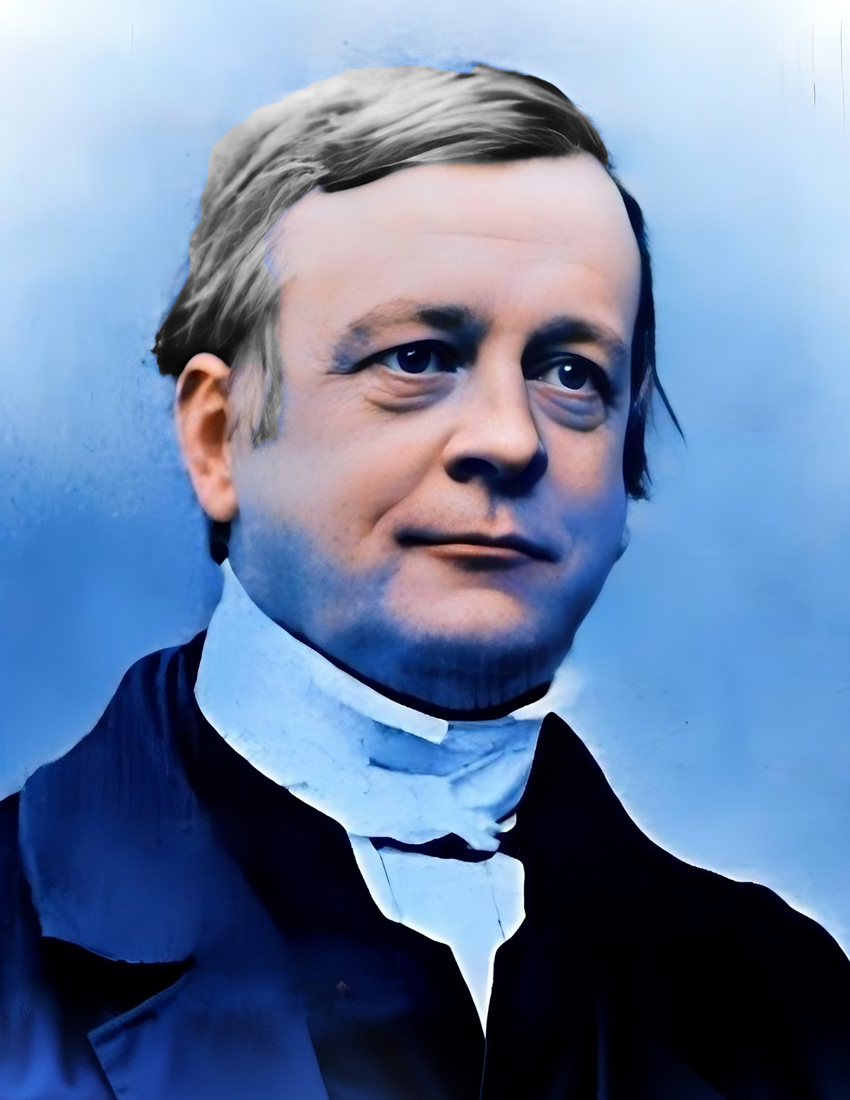Born: July 15, 1814, Yateley, Hampshire, England.
Died: January 2, 1878, Edgbaston, Warwickshire, England.
Buried: Rednal Roman Catholic Cemetery, Warwickshire, England.
Edward Caswall

Hymns by Edward Caswall
The Early Years: A Life of Learning and Wit
Edward Caswall, born on July 15, 1814, in Yateley, Hampshire, England, was a man whose life was marked by a deep devotion to God and a passion for expressing his faith through hymns. The son of Robert Clarke Caswall, vicar of Yateley, Edward received a solid education at Chigwell Grammar School, Marlborough School, and Brasenose College, Oxford, where he graduated with honors.
Before leaving Oxford, Caswall published “The Art of Pluck,” a satire on the ways of the careless college student, under the pseudonym Scriblerus Redivivus, which means “Scribbler Revived” in Latin. This pseudonym was likely a reference to the Scriblerus Club, a group of early 18th-century English writers who collaborated on satirical works, and it showcased Caswall’s wit, intelligence, and literary prowess.
Ordained Ministry and Pastoral Care
After completing his studies, Caswall was ordained as an Anglican deacon in 1838 and as a priest in 1839. He then served as a perpetual curate at Stratford-sub-Castle near Salisbury, where his dedication to his congregation was evident in his actions. Caswall would invite children who attended morning services to the parsonage for breakfast and even give them money to buy clothes on the anniversary of their baptism.
Conversion to Catholicism and Life as an Oratorian
However, Caswall’s spiritual journey took a significant turn in 1847 when he converted to Roman Catholicism. This decision led him to join the Oratory of St. Philip Neri at Edgbaston, where he found a new home for his faith and his passion for hymn writing. Under the guidance of future-cardinal John Henry Newman, Caswall embraced his new path and was ordained as a Catholic priest in 1852.
Caswall’s contributions to the Catholic Church extended beyond his priestly duties. He was entrusted with the responsibility of establishing the Oratory school, which opened its doors in 1859. Caswall’s dedication and leadership skills were evident in his role as acting superior whenever Newman was absent.
The Legacy of a Hymn Writer and Translator
Throughout his life, Caswall’s love for hymns remained a constant source of inspiration and comfort. He is best remembered as a translator of ancient hymns, breathing new life into timeless classics and making them accessible to a wider audience. However, Caswall was also a gifted lyricist in his own right, penning original hymns that continue to be cherished by Christians around the world.
Caswall’s hymns, such as “Alleluia! Alleluia! Let the Holy Anthem Rise,” “Come, Holy Ghost,” “Ye Sons and Daughters of the Lord” and his most famous, “When Morning Gilds the Skies,” are a testament to his deep faith and his ability to express the joys and struggles of the Christian life through poetry. His words have the power to uplift, comfort, and inspire, drawing the listener closer to God and reminding them of the eternal hope that lies ahead.
A Life Remembered: The Enduring Impact of Edward Caswall
On January 2, 1878, Edward Caswall passed away at the Birmingham Oratory in Edgbaston. He was laid to rest in Rednal, Warwickshire, England, near the grave of his friend and mentor, John Henry Newman. Though he may be gone, Caswall’s legacy lives on through the timeless hymns he created and translated, which continue to be sung by Christians around the world.
In a world that often feels uncertain and chaotic, the hymns of Edward Caswall serve as a reminder of the steadfast love and faithfulness of God. As we sing his words, we are encouraged to hold fast to our faith, to trust in the goodness of our Heavenly Father, and to look forward to the day when we will join the heavenly chorus in eternal praise.

